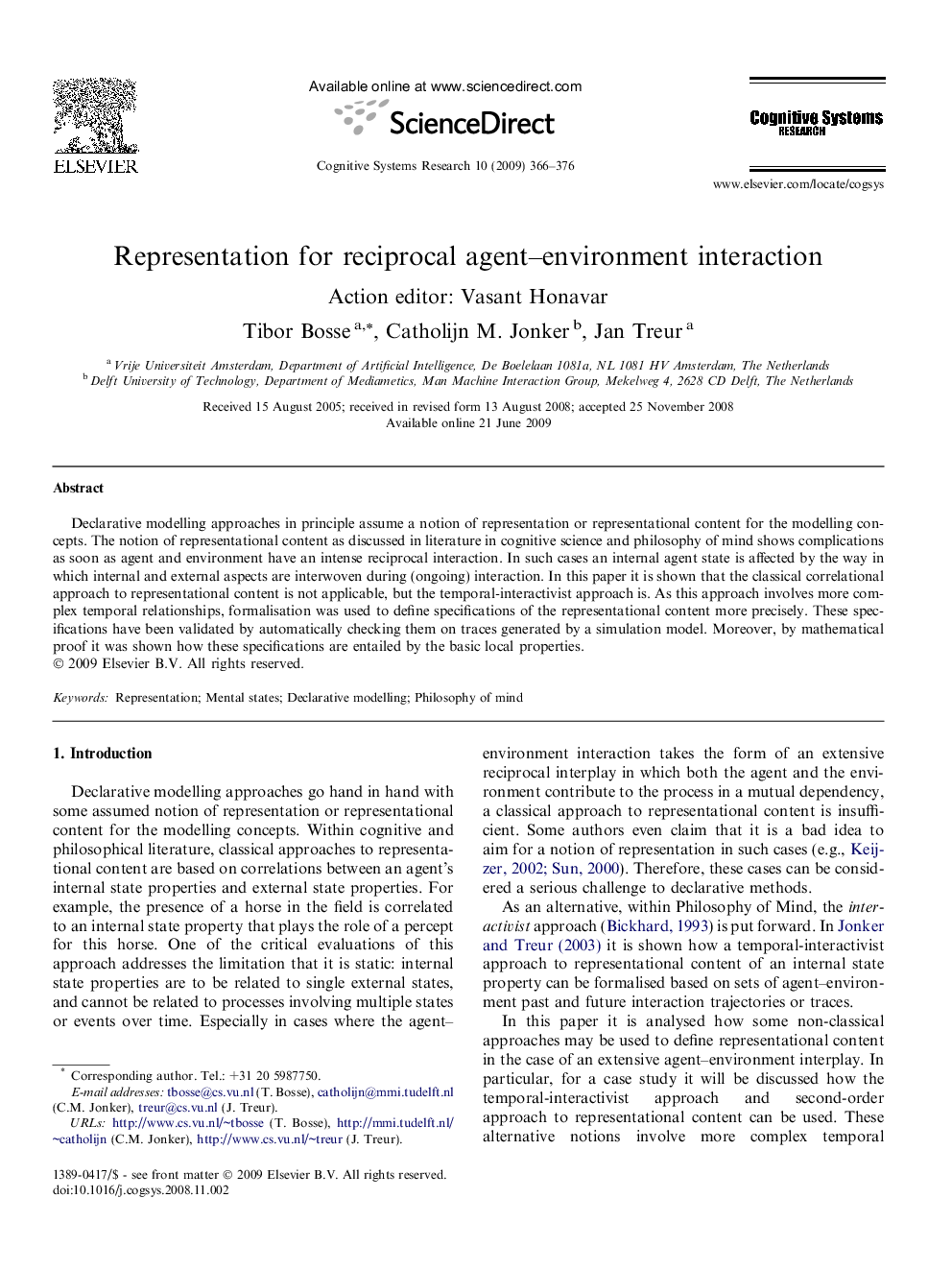| Article ID | Journal | Published Year | Pages | File Type |
|---|---|---|---|---|
| 378558 | Cognitive Systems Research | 2009 | 11 Pages |
Declarative modelling approaches in principle assume a notion of representation or representational content for the modelling concepts. The notion of representational content as discussed in literature in cognitive science and philosophy of mind shows complications as soon as agent and environment have an intense reciprocal interaction. In such cases an internal agent state is affected by the way in which internal and external aspects are interwoven during (ongoing) interaction. In this paper it is shown that the classical correlational approach to representational content is not applicable, but the temporal-interactivist approach is. As this approach involves more complex temporal relationships, formalisation was used to define specifications of the representational content more precisely. These specifications have been validated by automatically checking them on traces generated by a simulation model. Moreover, by mathematical proof it was shown how these specifications are entailed by the basic local properties.
